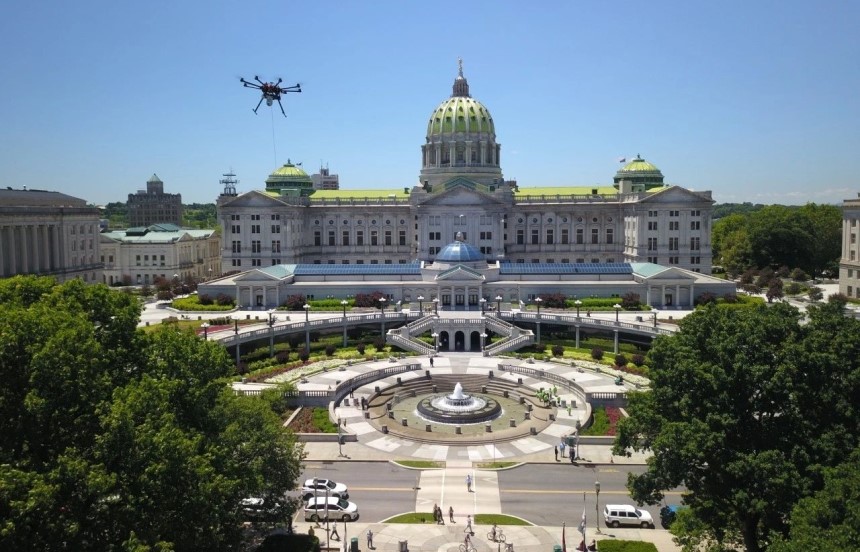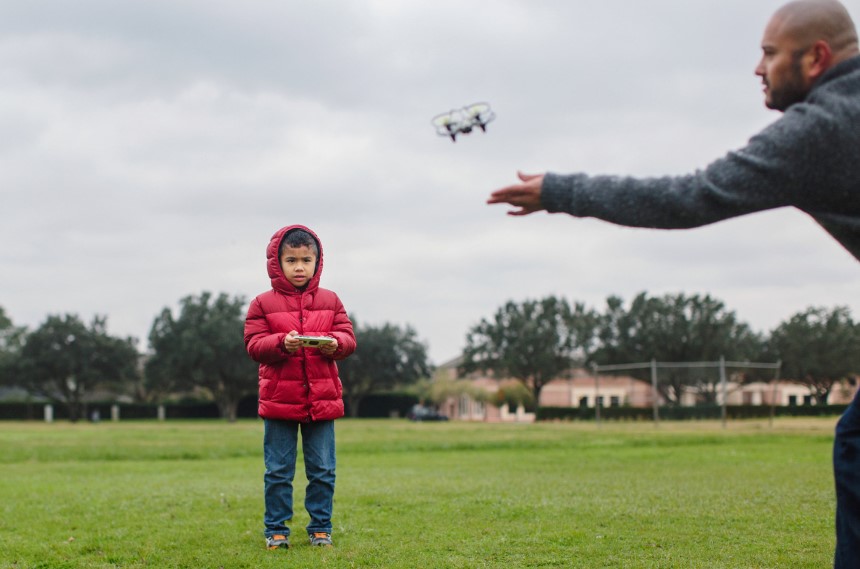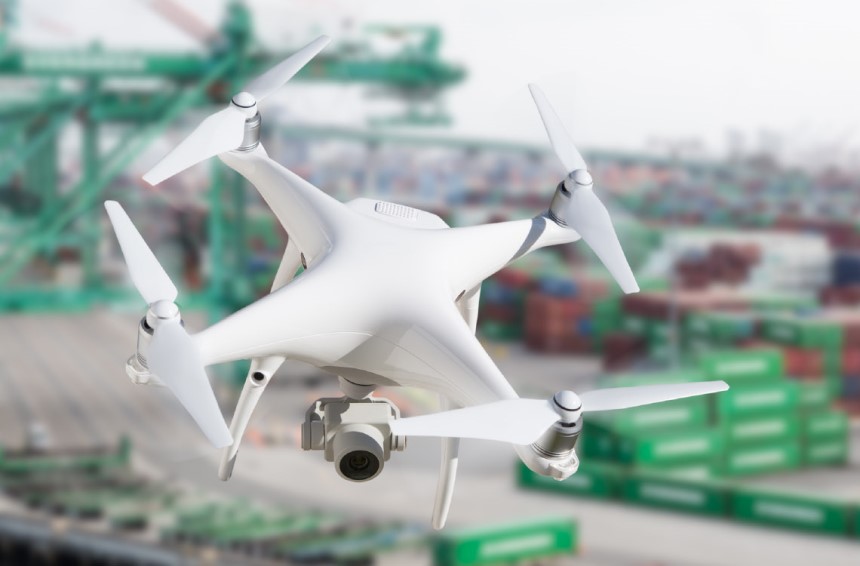Michigan drone laws are a microcosm of the issues that have arisen surrounding this relatively new technology. Any guide to drone training will emphasize that new pilots must adhere to the law to avoid landing in legal hot water. Over the last few years, drones have become increasingly popular, with five million sold globally Trusted Source • Global consumer drone shipments 2020-2030 | Statista The total number of consumer drone shipments worldwide was around 5 million units in 2020. The number is expected to increase over the next decade, reaching 9.6 million consumer drone unit shipments globally by 2030. www.statista.com in 2020, and the FAA estimates that there are more than 1 million in the United States.
Flying stunt drones is a great deal of fun, but there are many practical applications beyond a simple hobby. A simple perusal of any video sharing site will reveal plenty of stunning aerial drone footage created by professional and amateur pilots. But, as a drone pilot, it’s important to understand your responsibilities under Michigan law. Here we’ll explore detailed information on what a drone pilot can and cannot do to stay compliant with Michigan drone laws.

Many people wonder whether they need a license to fly a drone in Michigan. Before you start to fly drones in national parks and other scenic spots, registering a drone with the Federal Aviation Administration ( FAA Trusted Source How to Register Your Drone Register your drone at FAA DroneZone either under part 107 or the Exception for Recreational Flyers. If you are not sure what kind of a drone flyer you are, check out our User Identification Tool or visit our Getting Started webpage to learn more. www.faa.gov ) is necessary. All Small Unmanned Aircraft Systems (UAS) owners need to follow strict laws and regulations. This process requires the owner to file their name, home and email address to get started. Then a Certificate of Aircraft Registration and Proof of Ownership are received along with a unique identification number for your drone. This number is valid for 3 years and it must be displayed on your drone constantly.
The rules for flying drones in Michigan can be divided into federal, state, and local laws.
These are drone regulations Michigan residents need to follow alongside the state laws which we will cover next. Getting a commercial drone license in Michigan requires adherence to UAS Rule (Part 107) set out by the FAA. This would include a test on Aeronautical Knowledge to get a Remote Pilot Certification.
The rules for a hobbyist require adherence to the FAA variant of the above guidelines. If the drone weighs 0.55 lbs or more, it must be registered and this costs $5. There are other specific rules on line-of-sight flying, elevation, airspace access, and more.
If a drone is flown by a government worker, this is covered under either the same FAA Part 107 rule mentioned earlier or a national Certification of Authorization (COA).
 State Laws
State LawsLet’s take a look at the relevant drone legislation that covers Michigan. There are two state-wide laws that apply to the use of drones in the state.
SB 992 // 2016
This legislation states that:
Local governments are prohibited from the control of UAS unless that area owns the drone.
Commercial drone operation is allowed if the operator is FAA approved to work in a commercial capacity. Hobby operation is allowed as long as the operator is compliant with national law.
Drone use that acts in contrast with emergency employees and is used to frighten someone. to violate restraining orders or capture images that invade a person’s privacy is prohibited.
Sex criminals using a drone to photograph a person that they are not permitted to call or to trace contacts is prohibited.
A person that uses a drone in a manner prohibited by this law is guilty of a misdemeanor.
SB 54 // 2015
This legislation prohibits the use of a UAS to harass or interfere with a person engaged in hunting.
Order 5.1 State Parks and Recreation Areas // 2019
The Michigan State Park drone laws prohibit:
The operation of uncrewed aircraft they intentionally and knowingly complies with the performance of official duties.
The operation of an uncrewed aircraft to interfere with search and rescue.
The flying of a drone within 100 meters of a historic or cultural site/structure.
Flying in an inhabited bathroom, open-changing courtroom. equestrian center. shore area and aerial right-of way areas.
Commercial flying without prior approval received as written consent from an authorized representative of the relevant section.
Commercial drone pilots working in Michigan are subject to the aforementioned FAA Part 107 Rules.
More support on Michigan drone legislation can be found on uavcoach.com.
These are drone laws that apply to specific cities, counties, and areas in Michigan:
City of West Bloomfield Deadly Ordinance // 2016
This town ordnance states that all city parks as no-fly zones.
The Univerity of Michigan – University Policy // 2017
The University of Michigan has an ordinance in-place that prohibits the operation of drones over any campus. Prior permission must be awarded with an application that will be reviewed by the IASC and delivered for final approval to the Executive Vice President and the CFO.
Mt. Brighton Ski Resort – Vail Properties Policy // 2020
This prohibits the use of recreational or commercial drones by guests or members of the public for any reason. There are limited exceptions if the operator is approved, they have an FAA exemption and they have written consent from the hotel.
As we’ve touched on above, whether you’re using the drone for recreational or commercial purposes will impact the Michigan drone laws.

The intentional violation of the above safety requirements and/or the careless operation of drones may make the operator liable to civil and/or criminal penalties. We recommend that recreation drone pilots consult FAA rules and regulations on the proper use of drones. In many cases, using common sense when operating a drone around wildlife, public areas, and historic sites can prevent many potential problems.

Step 1: Understand the Rules
Operation from a moving vehicle or aircraft (§ 107.25)
Daylight operation (§ 107.29)
Visual observer (§ 107.33)
Visual line of sight aircraft operation (§ 107.31) *
Operation of multiple small unmanned aircraft systems (§ 107.35)
Yielding the right of way (§ 107.37(a))
Operation in certain airspace (§ 107.41)
Operation over people (§ 107.39)
Operating limitations for small unmanned aircraft (§ 107.51)
*The FAA will not waive this section to allow the carriage of property of another by aircraft for compensation or hire.
Check the Part 107 waiver application process for more information.
Just like other states and countries, Michigan has areas restricted for drone piloting and it’s important to know them beforehand to avoid violating the law. These areas include:
As you can see, the laws can be a little complicated, but ignorance will not help you to avoid fines or other penalties. So, if you want to use a drone, it is important that you familiarize yourself with Michigan drone laws.
You don’t need to learn the entire set of laws for drones, simply concentrate on your specific area of use. In most cases, this will be using your drone for fun. Fortunately, most of the rules for recreational drone use are quite simple. Once you are familiar with the appropriate rules, you can then concentrate on piloting your drone and getting some great images or wowing your friends with your aerial skills.